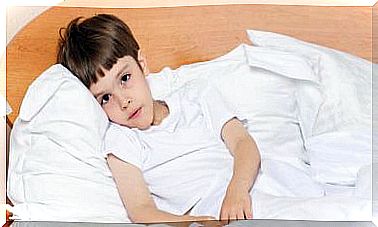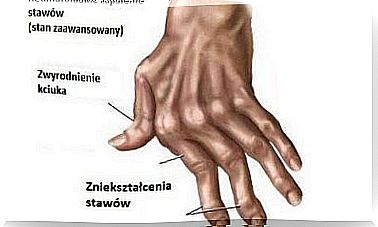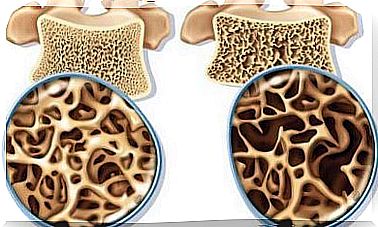6 Symptoms Indicating That The Child Suffers From A Lack Of Showing Affection
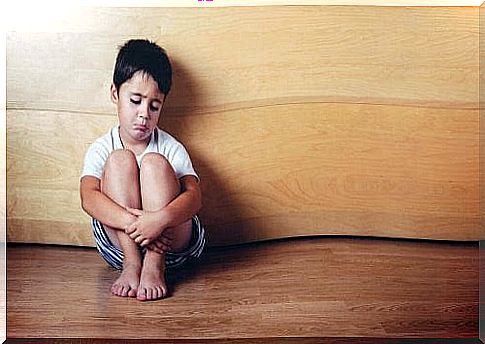
Unloved children do not know what a tender embrace, a kiss or a warm word from their parents is. Get into the skin of your kids for a moment and think about whether you would like to grow up in the conditions you create for them. One of the essential elements of a young person’s development is not only receiving love, but also the ability to show their own feelings.
Parents are people who shape their kids’ childhood and their development and maturity in adulthood depend on them. Yes, economic and educational factors are important, but not the most important. The atmosphere of the family home most influences the character and personality of a child. Therefore, the key is the bond with the parents or guardians and the feeling of being an important member of a small family community.
Unloved children cannot show positive feelings because they have never received positive feelings from their parents. Think how important an element of development is hugging you to sleep every day, kissing without an occasion, understanding or recognition in the eyes of parents.
In such conditions, a young person develops healthily among positive role models.
Unfortunately, not every child has a chance to grow up in the pleasant atmosphere of a home. The emotional coldness of parents concerns not only pathological families or families living on a low economic level. Unloved children also grow up in wealthy homes, where they lack nothing but a little love and a sense of being important.
Unloved children – how can you recognize them?
Happy childhood consists in developing in a small person a sense of security and trust in the people closest to him in the world, i.e. parents or guardians. Children should feel that they are unique, worthy of love, and most importantly – loved by their immediate surroundings.
When they lack tenderness and understanding from their relatives, a character gradually begins to form based on the behavior typical of rejected and undervalued children. It often happens that the older a child gets, the less we show him love, thinking that he can handle many situations on his own.
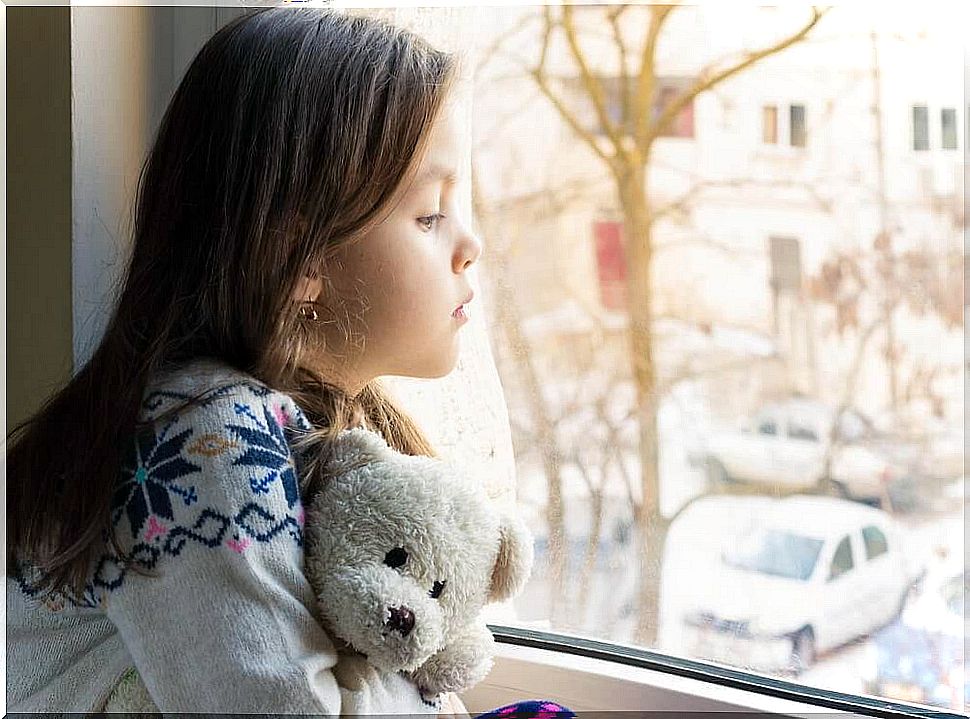
A frequent excuse for cold-blooded parents is that they simply don’t have time to look after their children when they are busy with work and daily duties. However, this is selfish thinking that in no way justifies family neglect.
A daily kiss, a several-minute conversation about what happened during the day, spending a free afternoon together, a few words of appreciation – is it so much?
Children suffering from a love deficit feel abandoned and lonely. When communication between the child and parents is lame, the young person becomes more and more lonely and misunderstood. It affects his self-esteem the most.
How do unloved children behave?
Unloved children generally follow one pattern:
- They find it difficult to connect with others, both with their peers and with adults.
- Their behavior is a source of many conflicts.
- They always stand up for themselves, trying to fend off attacks directed at them.
- They closely observe the surroundings and are extremely sensitive to every comment about their person.
- They are constantly stressed.
- Their body’s immunity is weak, exposing them to frustration and depression.
1. The child is disobedient
Unloved children have a great need for attention. Since they do not receive it from their parents, they try to focus the world’s attention on themselves. Hence the disobedience.
The youngest children subconsciously break established prohibitions, are rude in public: they shout, cry, have strong tantrums, etc. In this way they ask for love and interest from their parents. When they fail, their disobedience becomes strong.
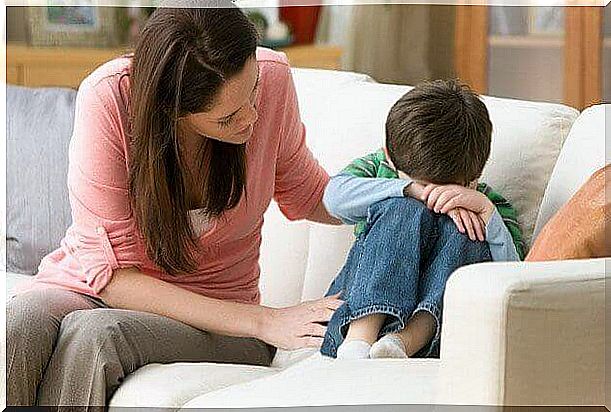
Common symptoms in this case are:
- Exhausting cry.
- Aggressive and impulsive behavior.
- Anger and anger.
- Frequent mood swings.
2. The child is aggressive
When your child’s behavior is aggressive, it’s worth taking the time to listen to them. It comes from the fact that you do not take your child seriously, do not appreciate it or show it any positive feelings.
Try to strengthen communication in your family and your child will trust you more, build self-esteem and become less aggressive over time. Honest conversation and showing trust can do a lot.
3. The child does not feel safe at home
Faced with an emotional vacuum and the lack of any positive feelings, unloved children live in constant fear: they lack a sense of security, they are accompanied by numerous fears, they are afraid to make contact with other people.
A consequence of lowered self-esteem is defensive behavior, aggression and an inability to understand others. Lack of trust and living in constant fear are a clear signal that a child lacks love and recognition from those closest to him.
4. The child lives in constant fear
Unloved children should be taken care of by a psychologist. In most cases, they are not able to deal with this problem on their own. Childhood is the period that forms the foundation for human adult life.
Unloved children struggle with a constant fear of abandonment. They don’t know anything like unconditional love or spending their free time happily. Such children are constantly fighting for attention and interest. So let’s go to a psychologist with your child and work together to improve mutual communication.
5. The child has learning difficulties
In many cases, the lack of love in the family and the parents’ inability to show their affection lead to a learning disorder in the child. Family problems lower children’s motivation. Why should a toddler make an effort if no one praises him for it?

According to many psychologists, the lack of proper communication between the parent and the child translates into problems with speaking and generally has poor academic performance. Children who lack affection and love start speaking later than their peers and have problems connecting with others from the very beginning.
6. The child lives in the world of electronic devices
Electronic nanny is an increasingly popular educational method. In fact, it is very comfortable for parents – the child sits in front of the TV and quietly watches cartoons, plays computer games, etc. And where is the role of the parent in all this?
More and more children are growing up in a technology bubble in which there is no room for lively conversation with another human being. Children are unable to interact with others because they are raised in an “impersonal” manner – parents do not teach them how to talk to others or show them affection.

In conclusion – how to take care of unloved children
Lack of affection and love leads children to develop a fear of being abandoned by their loved ones. Hence, the child is always vigilant and closely observes the parents’ behavior.
Children growing up at home without love live in constant fear from an early age, desperately crying out for warm feelings that would make them feel important, valued and unconditionally loved.
Remember that children are very sensitive and need constant attention and love. So spare them kisses, hugs, play together and go crazy from time to time. Then they will grow up to be valuable, self-confident, communicative and emotionally mature people.
Children who do not experience parental love are emotionally unstable and live in constant fear. This translates into immaturity, selfish behavior and problems with determining your identity. In addition, they are unable to establish healthy contacts with others and throughout their lives they have a great struggle with values that they have not been able to understand or define.





